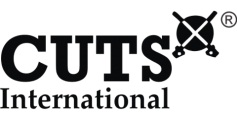The new Information Technology Rules must promote consumer welfare: CUTS International

New Delhi: The government recently notified the Information Technology (Guidelines for Intermediaries and Digital Media Ethics Code) Rules, 2021 (Rules). The Rules are a step in the right direction and provide much-desired certainty in the rapidly evolving and dynamic digital ecosystem.
“Under the Rules, both government and industry expect each other to act objectively and fairly in the interest of consumers. However, in their current form, the Rules do not envisage any engagement with consumers or consumer representatives in their design of enforcement. Consumer welfare needs to be the guiding principle for the Rules to be successful,” noted Pradeep S Mehta, Secretary General, CUTS International.
For instance, the Intermediary Guidelines still rely on periodic disclosures to address information asymmetry concerns, which have proven to be ineffective in the past. Intermediaries are expected to design internal due processes to redress user grievances and follow principles of natural justice during the content takedown. While positive developments, effective enforcement of such provisions without the involvement of consumers and consumer representatives remains doubtful.
Similarly, the Code of Ethics for Digital Media envisages a three-tier grievance redress structure, with the first two tiers being dominated by the industry and the last one by the government. Despite a welcome consumer-centric move, no role of consumers or consumer organisations has been envisaged.“Absence of consumer participation may result in such reforms stopping short in their tracks”, quipped Mehta.
A recent study by CUTS to understand consumers' perception on encryption reveals that consumers acknowledge the value unlocked by instant messaging services, while also the appreciating the privacy and security benefits offered. Consumers’ usage of such services may reduce should such additional benefits become uncertain and consumers understand this fact. Privacy was recorded as one of the top three benefits of instant messaging services.
Thus, any suggestion to direct intermediary to identify first originator of information must be viewed with caution. While the Rules provide that less intrusive means need to be exhausted before, there is no clarity on who will decide this test has been passed.
In addition, the reason for merging intermediary guidelines and the digital media ethics code under one set of rules remains unclear, especially given that different ministries would be administering the same – Ministry of Electronics and Information Technology and Ministry of Information and Broadcasting – inadequate consultation has hitherto taken place with respect to the digital media ethics code. The same may not also be in spirit of the parent law i.e. the Information Technology Act, 2000, which does not specifically deal with information and broadcasting matters.
The guidelines have given many powers to the executive, i.e., government and its agencies to order intermediaries to take down content, and compel them to provide information and assistance for various purposes. More so, the state and its agencies may also bypass any judicial oversight while exercising these powers, thereby adding to arbitrariness. “This can hamper free speech,” says Mehta.











